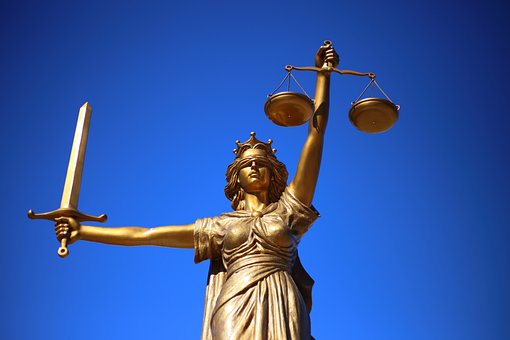
I had hoped that it would not come down to this, but when JUSTICE IS PERVERTED BY AN INDIVIDUAL OR GROUPS DESIRE TO RETAIN AND EXERT POWER OVER OTHERS, BY SUPPRESSING EVIDENCE OF CRIMINAL BEHAVIOR WITHOUT GOOD CAUSE, NO ONE WHO BELIEVES IN EQUALITY UNDER THE LAW SHOULD REMAIN SILENT.
As the Impeachment trial oF DONALD TRUMP MOVES ON, I WOULD LIKE TO DRAW YOUR
ATTENTION TO FOLLOWING PASSAGES TAKEN FROM THE RULES AND PROCEDURES
OF THE U.S. SENATE, DEALING WITH IMPEACHMENT.
First, consider the following, taken from the STANDING RULES AND PROCEDURES OF THE U.S. SENATE.
"The Senate shall have power to compel the attendance of witnesses, to enforce obedience to its orders, mandates, writs, precepts, and judgments, to preserve order, and to punish in a summary way con tempts of and disobedience to, its authority, orders, mandates, writs, precepts, or judgments, and to make all lawful orders, rules, and regulations which it may deem essential or conductive to the ends of justice."
This passage tells us this: The SENATE has the Power to "...COMPEL THE ATTENDANCE OF WITNESSES." and "...TO PUNISH IN A SUMMARY WAY CONTEMPTS OF AND DISOBEDIENCE TO, ITS AUTHORITY..." In other words: The Senate, by the RULE OF LAW, can force witnesses to appear and give Testimony.
DONALD TRUMPS CLAIM OF "EXECUTIVE PRIVILEGE," preventing certain witnesses from
Testifying because of NATIONAL SECURITY CONCERNS, is nothing more than a SMOKE SCREEN. A stipulation can be made to restrict questions to the TWO ARTICLES OF IMPEACHMENT. Any refusal to give Testimony, must be accompanied by the REASONS SUCH TESTIMONY WOULD JEOPARDIZE NATIONAL SECURITY.
In the End, we have this: ARE WE GOING TO ALLOW THE PRESIDENT, WHO IS THE ONE
ON TRIAL, TO HAVE THE FINAL WORD ON WHO IS ALLOWED TO TESTIFY? REALLY?
IN PART 2, WE WILL CONSIDER THE FOLLOWING:
...And the Presiding Officer on the trial may rule on all questions of evidence including, but not limited to, questions of relevancy, materiality, and redundancy of evidence and incidental questions, which ruling shall stand as the judgment of the Senate, unless some member of the Senate shall ask that a formal vote be taken thereon, in which case it shall be submitted to the Senate for decision without debate; or he may at his option, in the first instance, submit any such question to a vote of the members of the Senate. Upon all such questions the vote shall be taken in accordance with the Standing Rules of the Senate.

No comments:
Post a Comment